-
 Halima Abba, Africa Finance Corporation
Halima Abba, Africa Finance CorporationHalima Ibrahim Abba is a banker and investment professional focused on infrastructure in Africa. She currently serves as a Senior Investment Analyst and Special Assistant to the Chief Investment Officer of the Africa Finance Corporation (AFC), a US$4.2bn pan-African infrastructure financier. She engages in strategic planning, business development, operational execution of large power and heavy industry transactions across the continent, as well as investment reviews of transactions in AFCs 5 key sectors – natural resources, transport, power, heavy industry and telecoms, working with various clients including private funds, large corporates and private developers. Halima has closed deals with aggregate US$1bn+ total investment value. Halima also provides deal support to AFC on its pioneer investment in Anergi Holdings Limited, a leading diversified energy business with over 1,575MW in power assets operating in 5 African countries.
Prior to joining AFC, Halima worked as a Legal Enterprise Officer in the Bureau of Public Enterprises (BPE), the Nigerian entity with the mandate to handle privatisation of state enterprises, addressing post-power assets privatisation matters, reviewing infrastructure policy frameworks and bills and managing post-privatisation disputes against the BPE and other related parties. She also worked with Goldman Sachs and Nomura in the sales and structuring teams.
Halima has an LLB (Law) from Kings College London, UK and an MPhil in Development Studies from Cambridge University, UK. She is a Level 2 Chartered Financial Analyst qualification student.
-
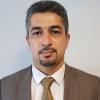 Elvin Afandi, Islamic Corporation for the Development of the Private Sector
Elvin Afandi, Islamic Corporation for the Development of the Private SectorElvin Afandi holds a PhD in Economics and is currently a Principal Economist at the Islamic Corporation for Development of Private Sector (ICD). He has 15 years of professional experience serving at the Central Bank of Azerbaijan, Ministry of Economy of Azerbaijan, World Bank and Asian Development Bank. He has also taught graduate courses in development economics and econometrics at a number of universities both in Azerbaijan and Saudi Arabia. He publishes academic papers in the field of development economics and entrepreneurship.
-
 Richard Amor, European Investment Bank
Richard Amor, European Investment BankRichard Amor is Head of the Institutional and Implementation team for the European Investment Bank's operations in Africa, Caribbean, Pacific, Asia and Latin America.
Since joining the EIB in 2007, Richard has worked on many landmark project finance and PPP transactions in Europe, Africa and the Middle East across the renewable energy, telecoms, infrastructure and industrial sectors. More recently, Richard was part of the task force within the EIB that was responsible for the creation and design of EFSI (the European Fund for Strategic Investments).
Prior to joining the EIB, Richard worked for Freshfields Bruckhaus Deringer in London, Tokyo and Frankfurt.
-
 Soren Andreasen, European Development Finance Institutions
Soren Andreasen, European Development Finance InstitutionsSoren Peter Andreasen, a Danish citizen, holds a master's degree in Public Policy from Harvard University and started his professional career with United Nations Secretariat in New York. He later joined McKinsey & Company in Copenhagen and subsequently co-founded Dalberg Global Development Advisors, where he held the positions of Partner and Regional Director for Europe. In 2010, he started up his own consultancy company, Commons Consultants, in Copenhagen. He joined EDFI in September 2016.
-
 Oliver Andrews, Africa Finance Corporation
Oliver Andrews, Africa Finance CorporationOliver Andrews is Executive Director and Chief Investment Officer of the AFC. His oversight functions include end to end origination and execution of transactions for the corporation.
An entrepreneurial engineer and transport economist with over 30 year experience in the infrastructure sector as an infrastructure project, developer, financier and strategic adviser. He has successfully directed numerous infrastructure deals in Africa leading project development teams providing strategic, policy, programme and commercial advice on infrastructure development issues to development financial institutions, international blue chip corporations, and Governments both in Africa and Europe.He was the project director for the award winning - 2014 Thompson Reuters Project Finance Africa power deal of the year -Cenpower leading a multidisciplinary project team drawn from several institutions that successfully achieved financial close for a US$ 900 million landmark project in Ghana.
-
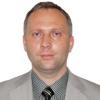 Artur Andrysiak, Asian Development Bank
Artur Andrysiak, Asian Development BankArtur Andrysiak is a Senior Fragile Situations Specialist with the Pacific Department of Asian Development Bank (ADB). Artur leads and advises the Pacific Department on implementing ADB's approach to engaging with fragile and conflict-affected situations (FCAS), and acts as the anchor point in ADB for FCAS operational issues. He supports corporate-wide accountabilities on FCAS including coordinating with various ADB departments and with development partners on policy, technical and operational matters.
Artur has over 18 years of professional experience both at the national and international, including with United Nations Economic and Social Commission for Asia and the Pacific, United Nations Economic Commission for Europe and Australian Bureau of Statistics.
Artur is a national of Australia and Poland and holds a master's degree in Management and Accounting from the Australian National University; and a bachelor's degree in Economics and Finance from the Edith Cowan University.
-
 El-hadj Bah, African Development Bank
El-hadj Bah, African Development BankDr El-hadj Bah is Chief Policy Economist at the African Development Bank. In this role, he is part of the team that drafted the Bank's Blended Finance Framework. Prior to this position, he was Principal Research Economist in charge of evaluating the additionality and development outcomes of private sector operations.
Before joining the Bank, he was a lecturer in economics at the University of Auckland. He received his BSc in Industrial Engineering with a specialisation in Project Management from Mohammadia School of Engineers (Rabat, Morocco). He obtained an MSE in Industrial Engineering and a PhD in Economics from Arizona State University.
-
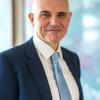 Michael Barrow, Asian Development Bank
Michael Barrow, Asian Development BankMichael Barrow is Director General for ADB's Private Sector Operations Department handling all of the Bank's private infrastructure and financial institutions investments, lending and guarantees. Michael is concurrently on the board of Asian Climate Partners, a climate change-focused private equity fund established in Hong Kong. He joined ADB in July 2003.
Prior to joining ADB, Mr Barrow worked for the Deutsche Bank group over the course of 15 years in London, Tokyo and Singapore, lastly as both Director of Project Finance and Transportation, with a project finance and PPP focus. He was Senior Vice President in the Structure Finance Department of Sumitomo Mitsui Banking Corp. in Singapore handling project financing.
Michael was educated at the Lycee Internationale in Paris, France after which he obtained an MA in Oriental Studies from Oxford University England.
-
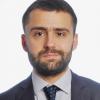 Marco Boffo, Cassa depositi e prestiti S.p.A
Marco Boffo, Cassa depositi e prestiti S.p.ADr Marco Boffo is an International Affairs Officer in the Public Affairs Division of Cassa Depositi e Prestiti. Prior to joining Cassa Depositi e Prestiti, Dr Boffo worked as a consultant for the OECD LEED Trento Centre for Local Development, as a Research Fellow at the Leeds University Business School, and as a graduate teacher of development economics at SOAS, University of London.
Fluent in English, French and Italian, Dr Boffo graduated summa cum laude in economics at the University of Rome “La Sapienza” and earned a PhD in economics at SOAS, University of London, while in receipt of a prestigious scholarship from the UK’s Economic and Social Research Council.
-
Nicolai Boserup, Investment Fund for Developing Countries
Nicolai Boserup is part of the senior management team that redesigned the Investment Fund for Developing Countries (IFU), Denmark’s state-controlled development finance institution (or DFI), from being a wholly state financed DFI to being a fund manager that now catalyses private institutional capital into investments in developing countries. Today around 50 percent of IFU’s investments are financed by private capital. As general counsel and senior vice president for strategy and policy, Nicolai heads the legal team, compliance, including tax, relations to the Danish government, the World Economic Forum and OECD Sustainable Development Investment Partnership, the EU and other international fora and heads IFU’s strategy development.
Nicolai has a background as a practising lawyer with degrees from the universities of Copenhagen and Oxford.
-
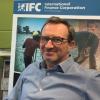 Michel Botzung, International Finance Corporation
Michel Botzung, International Finance CorporationMichel joined IFC 16 years ago and has since held several field positions in North Africa, the Middle East, India and more recently Africa (Nairobi). Throughout his career at IFC, Michel has focused on developing tailored (and often innovative) advisory proposals to help IFC's clients deepen their relationships with the local economy, improve their governance, and increase their compliance with IFC's Business Standards. In his current position, as FCS (Fragile and Conflict Situations) Manager for Africa, Michel helps IFC growing its business in these challenging markets. His team, mostly based in the field, provides market intelligence, allocates funding and produces and shares operational knowledge with internal and external stakeholders. Michel has been leading IFC’s engagement in the refugee space in Africa, notably in Kenya around Kakuma. Michel holds a Master in International Relations (Paris-Sorbonne) and a Master in Development Economics (Paris-EHESS)
-
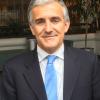 Franck Bousquet, World Bank
Franck Bousquet, World BankFranck Bousquet is the Senior Director of the World Bank's Fragility, Conflict, and Violence Group. He assumed this position in July 2017, to lead implementation of the Bank's strategic approach to addressing FCV across low- to middle-income countries.
Bousquet brings several years of leadership experience on resilience and reconstruction issues. Most recently as director in the Middle East and North Africa (MENA) region, where he led the Bank's engagement with international partners during a period of unprecedented volatility in the region.
In response to the Syrian refugee crisis, Bousquet worked with the United Nations, multilateral development banks, and bilateral partners to create the Global Concessional Financing Facility, an international effort to bridge the gap in humanitarian and development assistance by providing concessional financing to middle-income countries facing refugee crises. -
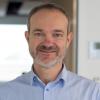 Thierry Buchs, OBVIAM
Thierry Buchs, OBVIAMThierry's main tasks are related to the management of the institutional relationship with SIFEM's shareholder, and to all development policy issues linked to SIFEM. He also supports the investment team on economic analysis and development-related issues. Thierry has more than 15 years of international experience in the field of economic analysis, investment and project management. Before joining Obviam in 2016, he worked at the International Financial Corporation, World Bank and SECO. Thierry holds a PhD in international economics.
-
 Colin Buckley, CDC
Colin Buckley, CDCColin's background is in international development and corporate finance.
Prior to joining CDC, Colin held senior positions at the Children's Investment Fund Foundation, the Millennium Challenge Corporation and the International Finance Corporation. After the Russo-Georgian war of 2008, he advised the Prime Minister of Georgia on the country's economic reconstruction. Prior to his work in international development, Colin practiced as a US attorney and a UK solicitor in Boston and London.
-
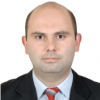 Osman Buyukmutlu, Islamic Corporation for the Development of the Private Sector
Osman Buyukmutlu, Islamic Corporation for the Development of the Private SectorOsman Buyukmutlu is Acting Director, Strategy and Policy Department at ICD, the private sector development arm of the Islamic Development Bank Group. He has over fourteen years of experience holding a variety of positions in corporate strategy, finance, economic & policy analysis. His responsibilities at ICD includes coordinating the preparation of ICD’s major corporate governance strategies, and processes including the preparation of the medium-term business plan, annual business plan and budget documents, corporate level KPIs, and delegation of authority matrices.
He also serves as a member of the ICD Management Committee, ICD Investment Committee, ICD Investment Committee for Money Market Fund (MMF), ICD Consultancy Committee, and ICD Provisioning Committee. In addition to his current duties, recently he has been selected as the Chairman of the Board of Directors of Euro-Mediterranean Investment Company (EMIC), which was founded by ICD and other investors in 2015 in Northern Cyprus.
Before moving to ICD, he served at various positions at Turkish Ministry of Trade between 2004 and 2011.
-
 Alice Chapple, Private Infrastructure Development Group
Alice Chapple, Private Infrastructure Development GroupAlice Chapple is Head of Development Impact at the Private Infrastructure Development Group (PIDG). PIDG invests in infrastructure projects (energy, water, roads, affordable housing, agri-infrastructure) at all stages of the project cycle, from project preparation to early stage development to provision of loans and guarantees. PIDG’s aim is to mobilise private sector investment at scale to deliver infrastructure in the poorest countries, providing basic services to households and opportunities for economic growth. It is funded by the governments of the UK, the Netherlands, Switzerland, Sweden and Australia and by the IFC.
Alice Chapple is an economist and a specialist in impact investment and international development. Her career has focused on identifying how companies and investors can have a meaningful positive impact on poverty and the environment, and how to drive more capital to the activities and places that need it most. Through her company, Impact Value, she currently works with several funds and companies to help them articulate, measure and maximise their impact. As well as the Private Infrastructure Development Group, current clients include CDC, FSDA, AgDevCo, Frontclear, the Global Innovation Fund and Smart Pension.
Alice’s other roles include Trustee of the Shell Foundation; member of the Advisory Board of Sainsbury’s Foundation; Chair of Investor Watch, a not-for-profit organisation established to drive more sustainable investment practices; and an advisor to the UK’s Department for International Development.
Alice has an MA in Economics from Cambridge University and is a chartered accountant.
-
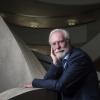 Paul Collier, Blavatnik School of Government
Paul Collier, Blavatnik School of GovernmentSir Paul Collier is Professor of Economics and Public Policy Blavatnik School of Government, University of Oxford. His research covers fragile states; restoring growth in African economies, the implications of group psychology for development; migration and refugees, which are the subject of his two most recent books; urbanisation in poor countries, a program which has just won challenge funding from the Foreign Office; and the crisis in modern capitalism, which is the subject of his most recent book, The Future of Capitalism, published in October. Sir Paul received a knighthood in 2014 for services to promoting research and policy change in Africa and has been listed as one of the hundred most influential public thinkers in five of the past ten years.
-
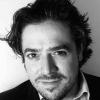 Benj Conway, Infrontier
Benj Conway, InfrontierBenj Conway is an entrepreneur and former diplomat. Benj studied medicine at Gonville and Caius College Cambridge and University College, Oxford and spent his early career at the Foreign and Commonwealth Office working across Asia and the Middle East. In the decade since leaving government, Benj has established and invested in companies predominantly in emerging markets. He co-founded InFrontier in 2012 as a specialist platform to conduct investments in frontier geographies.
-
 Sladjana Cosic, European Investment Bank
Sladjana Cosic, European Investment BankSladjana Cosic is a Social Development Specialist at the European Investment Bank. In her current role, Sladjana has led the development of the EIB's approach to conflict sensitivity, and is in charge of guiding its application in Bank's operations across the globe. She has strong operational background in social due diligence of investments, and has worked across sectors and regions including Subsaharan Africa, South and East Asia, Middle East and Eastern Europe. Prior to joining the EIB, she worked at the World Bank, focusing on social accountability and community-driven development in operations in the East Asia and Pacific Region, South Asia, and Europe and Central Asia. Her previous experience includes working on migration issues in thank tanks and NGOs, as well as reporting for electronic media in the Western Balkans. She holds two MA degrees from the University of Vienna and Johns Hopkins University in the field of Social Sciences, International Relations and Economics.
-
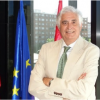 José Luis Curbelo, Compañía Española de Financiación del Desarrollo
José Luis Curbelo, Compañía Española de Financiación del DesarrolloJose L. Curbelo has a wide experience in COFIDES, since he was the Director of its Investment Department between the years 1999 and 2009. During his professional career he also held different positions, such as Deputy Chairman for Development Strategies and Public Policies and Chief Economist in CAF-Development Bank of Latin America, CEO at the Basque Institute of Competitiveness (Orkestra), Head for the Small Business Development Unity of the Multilateral Investment Fund (MIF) in the Inter-American Development Bank (IDB), etc.
He has a solid academic background. An economist, he received a PhD from the University of California-Berkeley, a Master Degree in Urban and Regional Planning from the University of Wisconsin-Madison and a “Licenciado” Degree in Economics from the University of the Basque Country. In addition, he followed courses at Harvard University, Harvard Business School, the John Fitzgerald Kennedy School of Government, the University of California-Los Angeles, the Amsterdam Institute of Finance or the World Bank, among others. His graduate studies were financed by scholarships from the Fulbright-Banco de Bilbao Foundation, the Juan March Foundation as well as by the National Science Foundation and the Newhouse Foundation of the United States.
